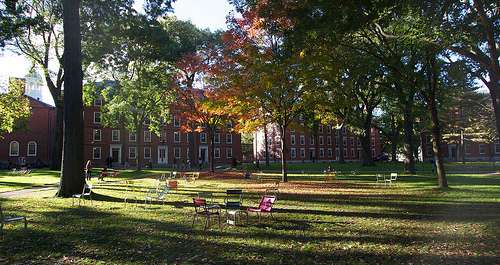The following article is archived and is no longer considered up-to-date. Please interpret its content in the context of the publishing date.

ARCHIVED
Rankings for Master’s Programs: What’s Out There and What’s Missing
Read a summary using the INOMICS AI tool
With application season largely behind us, it’s now time for students to make final decisions about where they will be heading this coming fall. For those in the lucky position of having been accepted to multiple universities, the question now is how to compare programs in order to make a final selection. Most people rely on rankings at some point in the application process, but do rankings really offer the nuance necessary to know if a program is a good fit? And without comprehensive lists comparing Master’s programs in particular, how useful are rankings at all?
In previous posts, we’ve looked at overall rankings systems and regional rankings lists for Europe, Asia and Latin America, but we’ve never focused specifically on graduate level rankings. One reason behind this omission is the simple fact that most rankings focus on the university as a whole, rather than differentiating between undergraduate and graduate education.
Rankings lists such as Times Higher Education World University Rankings, QS World University Rankings and Academic Ranking of World Universities can offer students great insight into top programs across disciplines and regions, but when it comes to a list of top Master’s programs, it’s nowhere to be found. While some schools excel across all levels of education, general rankings might skew the quality of many universities whose graduate programs far outshine their undergraduate, or vice versa.
Within the United States, U.S. News and World Report acts as the definitive ranking body, and offers specific lists of graduate schools based on discipline. Yet, even within these lists, Master’s and PhD programs are not differentiated. The British-based Eduniversal Best Masters Ranking does offer a Master’s program ranking, but their list is not widely known, and does not have the reputation of many of the aforementioned ranking schemes. Moreover, the list is largely based on HR and student impressions of each institution, rather than criteria such as publication rate, student/faculty ratio, or other more objective measures.
This lack of credible Master’s level rankings thus leaves us wondering how exactly Master’s students choose a program that’s right for them. For this reason, we’ve taken it upon ourselves to gather information on the topic, asking you – future and current Master’s students – exactly what it is you’re looking for. By taking part in our survey you will help us understand how programs are selected and exactly which criteria are most important for students.
Furthermore, we think reading personal accounts of other students’ experiences can offer a kind of insight not found in rankings at all. We choose which restaurant we want to go to for dinner based on personal reviews – so why would we choose a university based on anything less? To help out future students in their decision-making process, head to the INOMICS site and leave a brief review of your university.
If there are rankings lists you think we should have included, or if you have feedback on any that we did, feel free to leave comments.
Photo credit: Brandon Turner
-
- Scholarship, Conference, Prize / Contest
- Posted 2 weeks ago
Call for Applications: Gateway to Global Aging Education Research Hackathon
Between 27 Jul and 30 Jul in Washington, Stati Uniti
-
- Postdoc Job
- Posted 1 week ago
Postdoctoral Research Fellow Opportunity
At University of Notre Dame in Notre Dame, Stati Uniti
-
- Conferenza
- Posted 3 weeks ago
Industrial Policies in a Globalized and Financialized World
Between 7 May and 8 May












